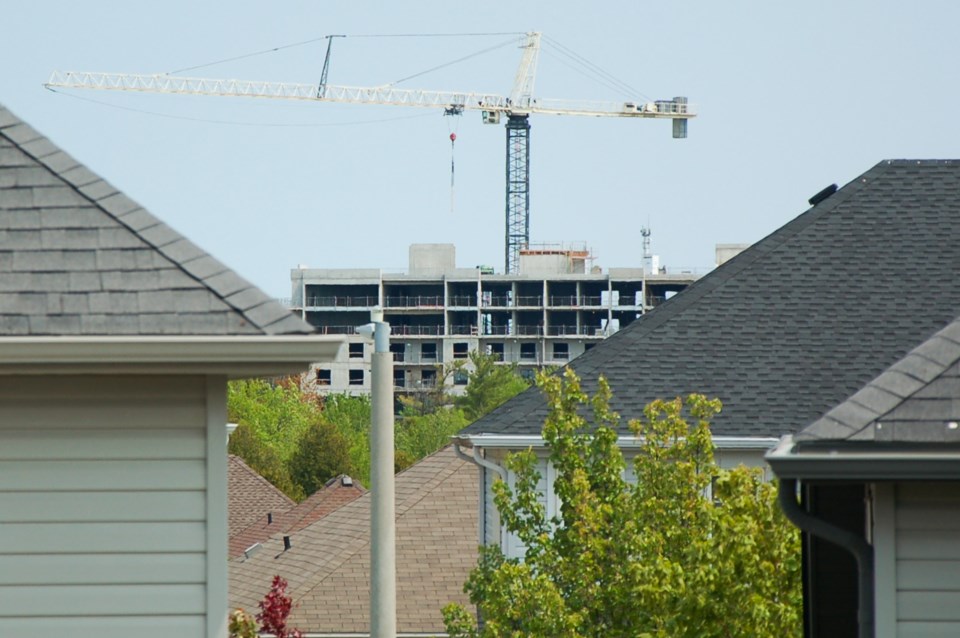With a “very, very slim” profit margin for purpose-built rental units, reducing taxes collected on their construction could lead to more being built and put a dent in the housing crisis, believes the president of Guelph and District Realtors’ Association.
Eliminating the HST is among the ideas put forward during a recent meeting of local stakeholders from throughout the housing continuum – social service providers, elected government officials, builders and more.
Held Thursday, the event was hosted by the realtors’ association.
During the session, numerous ideas were put forward. Hinschberger believes elimination of the HST would have the most dramatic effect.
“Construction financing has been very hard to come by and at an elevated cost. When you combine that with the cost and scarcity of labour, the margins are very, very slim,” Hinsberger said, noting funding provided through the Canadian Housing and Mortgage Corporation for purpose-built rentals comes with a nine-month delay.
“Looking at alternative means of financing … would help to cut down on the costs incurred by having to carry land loans or other more expensive forms of financing to get a project off the ground.”
Those costs are often handed down to tenants, Hinschberger noted.
Other ideas to come of the meeting include:
- Providing additional support for first-time home buyers with a tax credit of $8,000, up from $4,000
- Looking at converting underused commercial buildings into residential units, especially along major roads and transit routes
- Working with the Ontario Real Estate Association to get illegal funding out of the real estate market by securing loopholes and introducing a beneficial buyer directory – one that identifies the owners of numbered corporations
- Ensuring timely construction on lands already approved for development by the city, with a potential sunset clause on approvals
- Bringing housing suppliers from all stages of the housing continuum together to find potential areas for collaborative use of lands
- Advocating for efficiencies in the development process with governing agencies
- Eliminating minimum parking requirements for builds, especially in the downtown core.
“I think there is great support for each piece,” Hinschberger said. “It was a phenomenally productive meeting.
“It’s always comforting when you have people with a lot of different persuasions and approaches and views of a contentious topic who are willing to hear each other out.”
A couple of the ideas put forward are already under consideration as city council ponders reducing minimum parking requirements through an update to the downtown parking master plan.
Consideration of the draft update is slated for council’s meeting on Sept. 26; it was approved by the committee of the whole on Wednesday.
That version of the update includes a reduction to the number of parking spaces multi-unit buildings are required to have for residents – from one per unit to 0.85 per unit. If approved, the plan would also allow for the conversion of commercial spaces into residential units.
“Our hope is that we can make this a regular occurrence,” Hinschberger said of the stakeholders’ meeting.
Another is planned for January.
In the meantime, Hinschberger said each of the stakeholders will be working to progress ideas within their ability.
